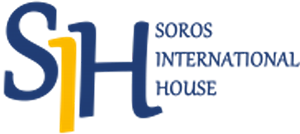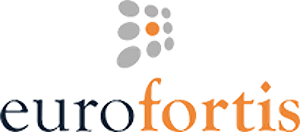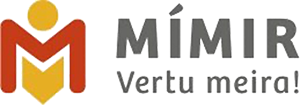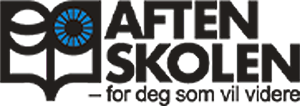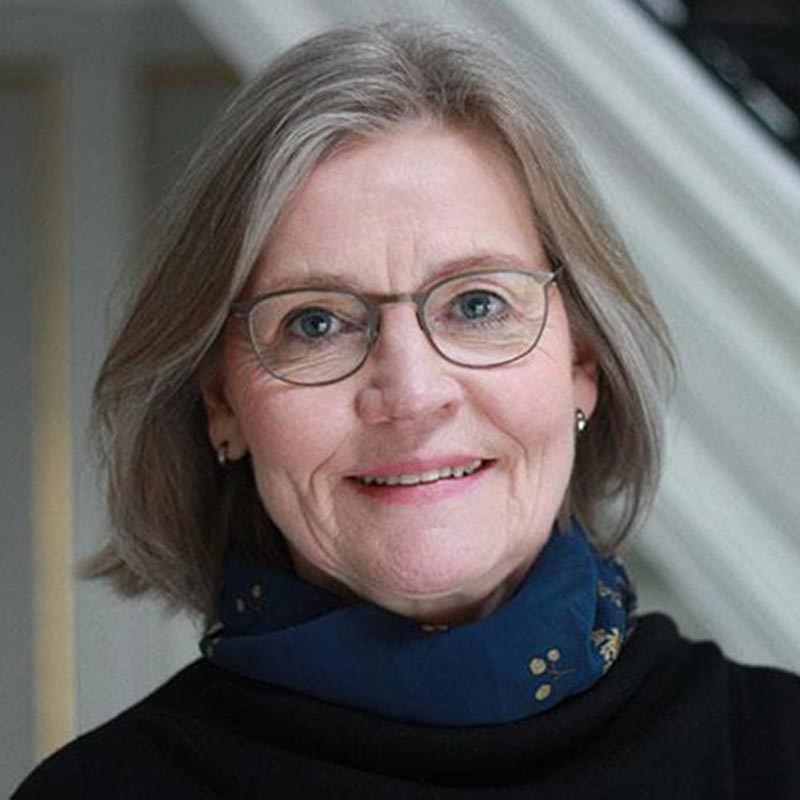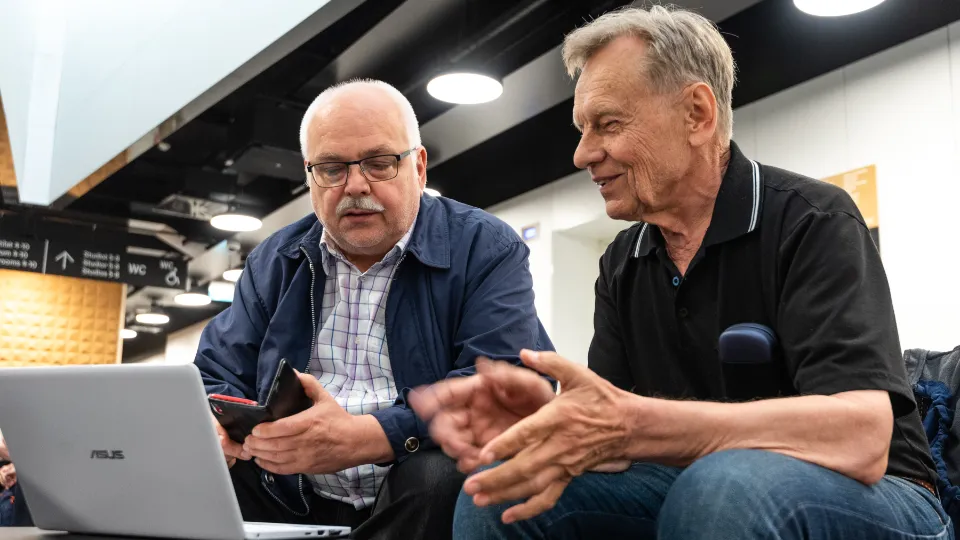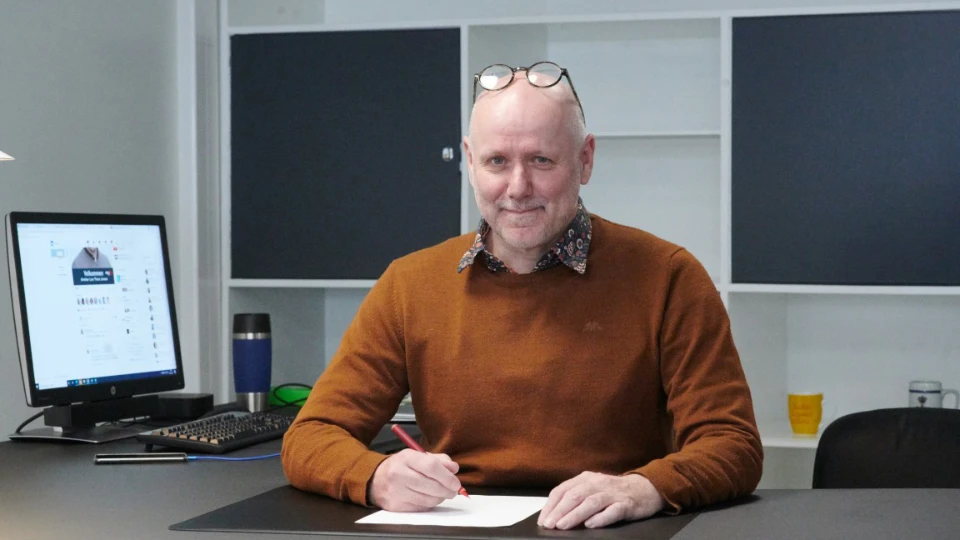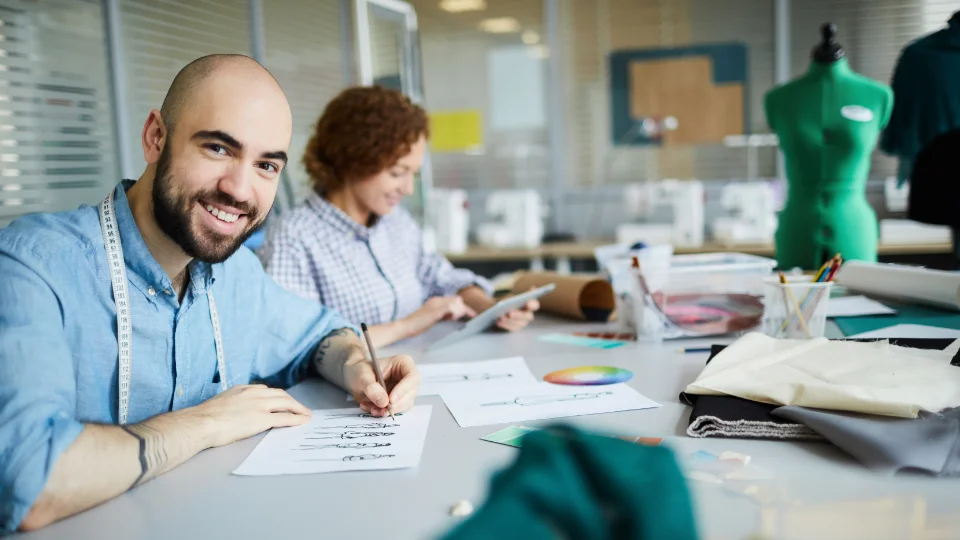The project designed and tested a course in social media skills directed toward adult learners in Lithuania, Latvia, Norway, and Iceland for adults aged 50 and over. Comparative analysis of the main trends in social media used in the workplace was carried out covering the four project countries. According to DataReportal in January 2019, the active social media users as a percentage of the total population were 83% in Iceland, 71% in Norway, 55% in Lithuania and 51% in Latvia.
The growing importance of adult education
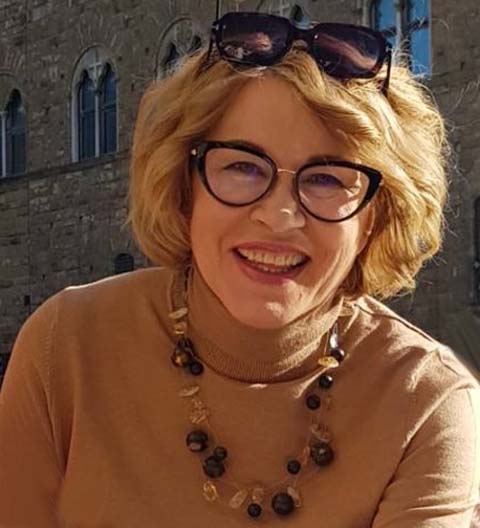
DialogWeb met the lead-coordinator of the project, Daiva Malinauskiene, online to learn more about the project. Daiva is the director of Soros International House, Lithuania, offering language courses for all ages, both onsite and online. She is experienced in the area of adult education as an administrator and board member of the Lithuanian Association of Adult Education (www.lssa.smm.lt), as well as being a board member of the Lithuanian Association of Distance and e-Learning (http://liedm.net/, and as she said when interviewed
“ – I even hold a master’s degree, my second master’s degree is in adult education, so for me adult education is very important, not only personally but also professionally. The world is changing rapidly, and education is the key to developing the proficiencies and knowledge of the workforce needed to enhance the competitiveness of the nation.” – Daiva Malinauskiene.
The idea of the project developed
– “With the rapid development of the modern economy, we have experienced how older generations lag behind in actively using social media, both in their personal and professional lives, especially people older than 50. We wanted to know more about that segment of the population and compare it with the situation in other countries, both Baltic and Nordic. We therefore contacted adult education institutions in Latvia, Norway and Iceland and invited them to participate in the project later named Be Digital – Social Media Skills for 50+” -says Daiva Malinauskiene, leader of the project.
First step was an analysis
And Malinauskiene continued: – “As a starting point in the Be Digital project, we carried out a comparative analysis of the most important trends in social media in the workplace in Norway, Iceland, Lithuania and Latvia. In January 2019, active users of social media as a percentage of the total population were 83% in Iceland, 71% in Norway, 55% in Lithuania and 51% in Latvia. We published a report with our findings: Comparative analysis report.
The most important product of the project
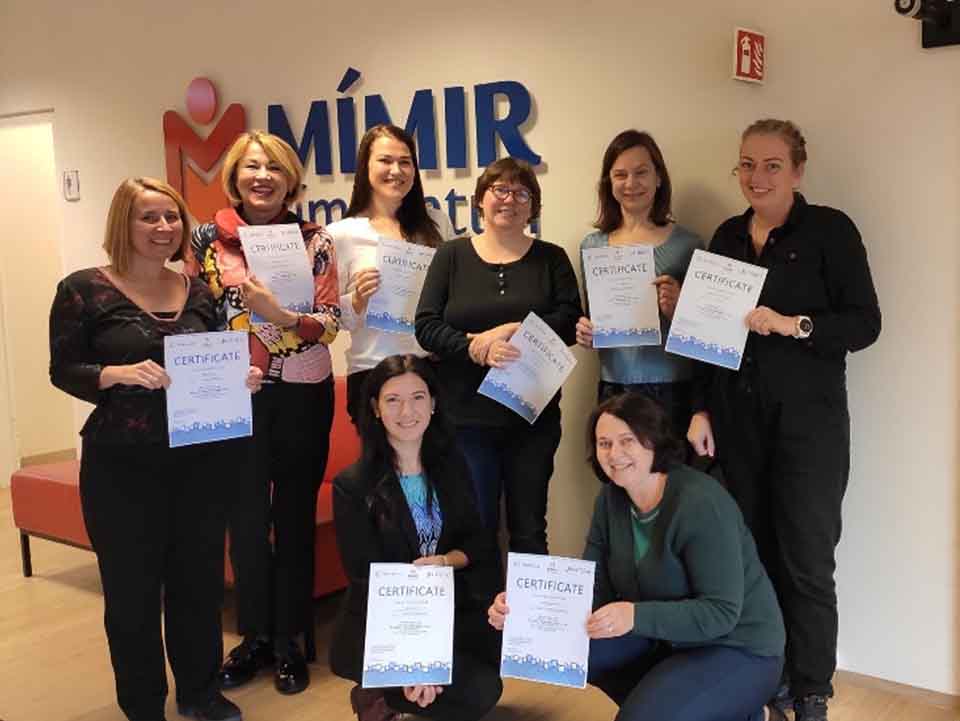
– Based on the knowledge we had gathered, we developed a training program as a guide to equipping adults over 50 with the knowledge and tools to understand the core social media platforms, and how to maximise social media results, using the latest statistics, examples and case studies from Facebook, Twitter, LinkedIn, Pinterest, Instagram, YouTube, TikTok and other emerging platforms. The program provides learners with social media knowledge, from the basics to advanced strategy execution, which is crucial to growing social media effectively.” – states Malinauskiene.
– “Then the program was introduced and tried out in all participating countries. After the pilot training events were finished in all countries, we arranged an online Live Web conference, as a final pilot training event, where we invited all participants and trainers to meet to share their experiences. Key-note speakers and participating trainers in Vilnius, Riga, Kristiansand, and Reykjavik gave presentations and reflections on the piloting. They were also active in panel discussions on what they had learned and in discussing their experiences of the pilot programs.” – says Daiva Malinauskiene.
The final conference
After some time, another conference – the final project event – was organised, an international conference that attracted some 140 participants. The main goal of the event was to present and promote the project results to the project target groups, as well as key stakeholders, with the aim of achieving their greater engagement and ensuring the sustainability of the project outputs. Originally, it was planned in Vilnius but under the circumstances it was also online. There, experts were invited to share their thoughts on issues regarding social media, digital divide, and how different age groups interact with the digital world. More information on the event is available at https://be-digital-project.eu/conference/ .
What we learned
– “Everything is possible, age does not really matter. What matters is interest – it all starts with the individual. There are tools, you can learn, practise, and adjust to this new digital world. We know that a large number of tools and techniques are still more oriented towards younger generations, but trends show that organisations, big corporations and authorities are adapting their approach to suit other generations.” – said director Daiva Malinauskiene. In closing, she emphasised that everyone is welcome to use the product Be Digital, and that the training program can benefit all age groups.
Participant’s experience
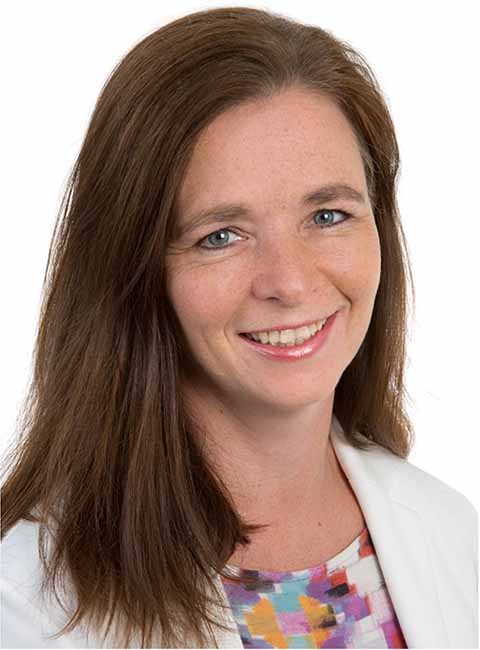
Johanna Thordorsdottir works for Sameyki, union of public servants in Iceland, where she leads education and training. She also chairs the board of the lifelong learning centre, Framvegis, and is a member of the board of Starfsmennt, the Educational Training Centre for Public Employees.
– “In all these organisations, we are concerned about the digital skills of people. We are constantly looking out for possibilities to meet the needs of our members. In a world where technology is changing rapidly, the need for people to upgrade their computer skills and digital literacy is becoming more and more pressing. Today, digital competencies are key competencies that an individual needs to have to be fully active in the labour market, in education and in society in general.” – says Johanna Thordorsdottir.
The power of social media
– “When I was introduced to the project, Be Digital immediately caught my interest. I have not belonged to the target group for long, but I thought that perhaps I lagged behind in the development of my use of social media. I wondered if it was because I was being prejudiced or misunderstanding something, so I registered as a participant in the pilot program, mainly for personal reasons. The teacher in Iceland, Frosti Jonsson, led us through the world of social media. During the program, I discovered that participation would benefit me more in my work than in my personal life.” – says Johanna Thordorsdottir, and she continues – “Frosti taught us, for example, how we could utilise Instagram and Facebook together and connect to Google to get in contact with our members and market our courses. The program was more professional than I had thought when I decided to take part.”
The other products
“I would also like to mention the other products of the Be Digital project. Because, as participants in the pilot program, we were invited to take part in the two conferences, I learned a great deal from them. The speakers were experts, who gave me a deeper insight into the digital world and how we interact.”
I am an immigrant in the digital world, and I realised how it feels to be an immigrant. That’s why I sometimes feel like being lost. I could identify my feelings with that
– Johanna Thordorsdottir
Digital divide is not only about age
– “I also realised that age is not the only problem. Age is one factor of the divide. Economics, access to education and technology, and gender are other factors. The digital divide refers to the gap between those who benefit from the digital world and those who don’t. People without access to the Internet and other information and communication technologies are disadvantaged. They are less able or maybe even unable to enter the digital world. They cannot obtain digital information, shop online, participate democratically, or learn and train to acquire necessary skills.”
Gender may have an impact
– I guess that gender has an impact on what percentage of the total population, or 83%, were active social media users in Iceland. The labour force participation rate of women in Iceland is higher than in many of our neighbouring countries. And being active on the job market puts pressure on individuals to learn and train to be able and effective in the digital world, and also to be able to follow family and friends via Facebook, Instagram or other social media.” – says Johanna Thordorsdottir.
We need to build bridges
– “We know that education is another factor that influences how active you are in mastering digital technology. Those who have more education tend to have better access and be more willing to seek further education to keep up to date than those less educated. We need a national effort, like the one in Sweden; Digidel was a campaign to increase the share of the population actively using digital services. Our society will not function without digitally literate citizens. The world is changing so fast, and we need to keep up to date! We need to understand all the new concepts, such as artificial intelligence, biotechnology and others connected to the 4th industrial revolution, so as to have an opinion and administrate active democratic participation.
Attitude matters
– I think that attitude has a crucial impact. If you regard the changes as positive and are eager to engage in the digital world, you will embrace new methods, tools, and techniques necessary to keep you up to date. The LLL centers in Iceland have developed courses to enable this e.g. Technology literacy and computer skills .” – says Johanna Thordorsdottir, leader for education and training at Sameyki in Iceland and a participant in Be Digital.
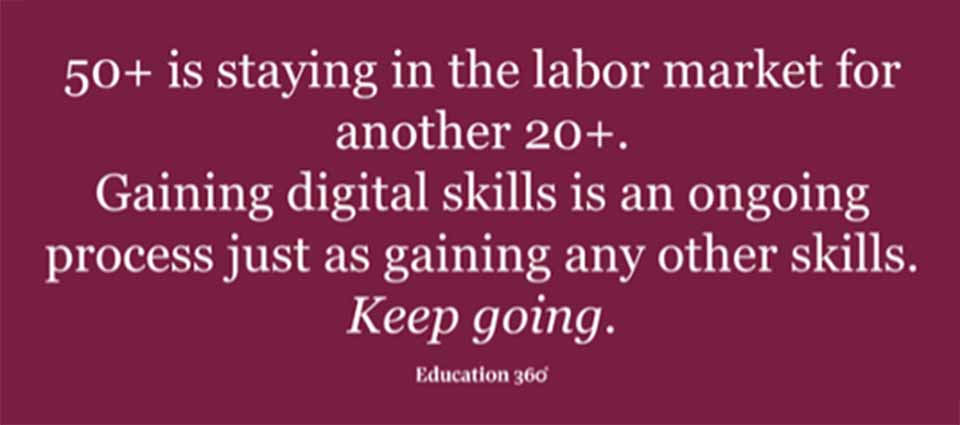
Having taken part in these interviews and written this article, the author, who is well over 50 years of age, has developed an interest in taking the program further, learning more and improving on her status as an immigrant in the digital world. I might even invite my husband to join me.
Test
